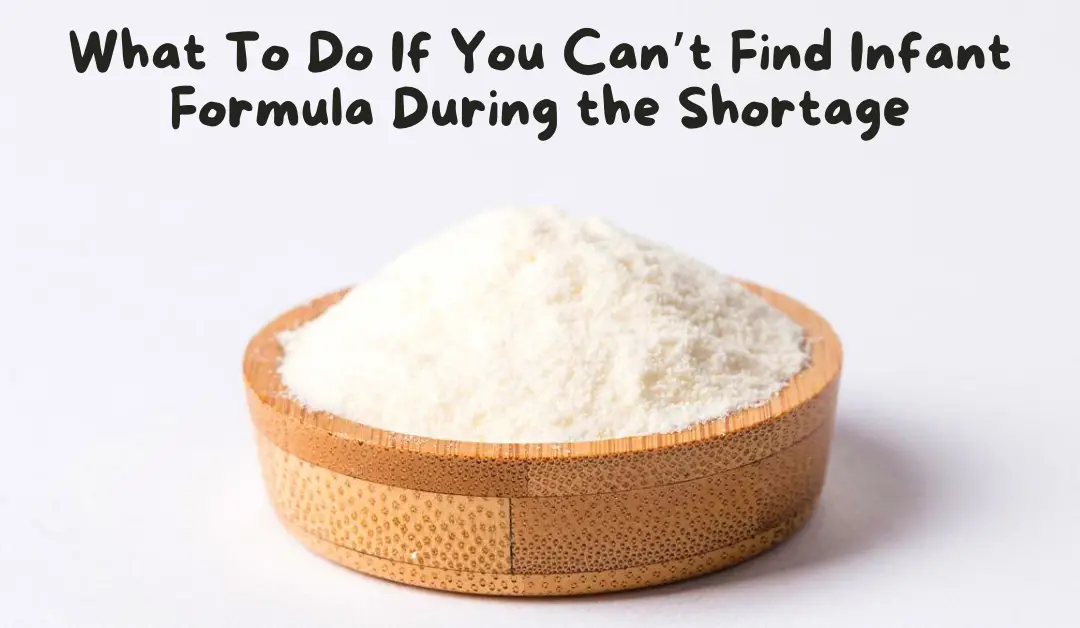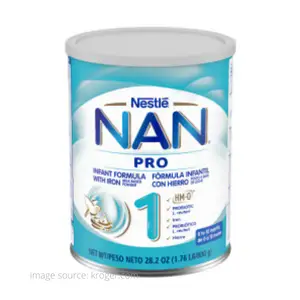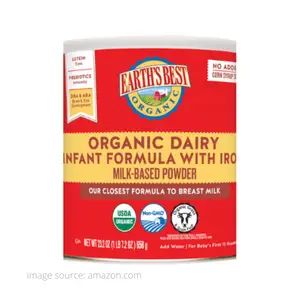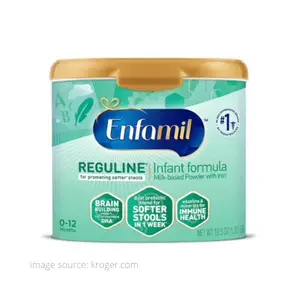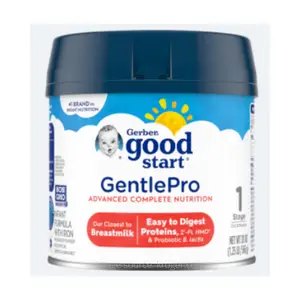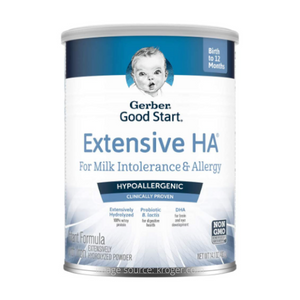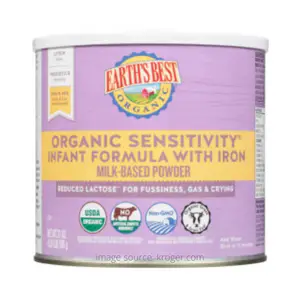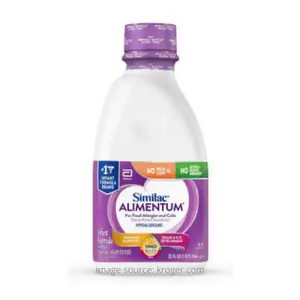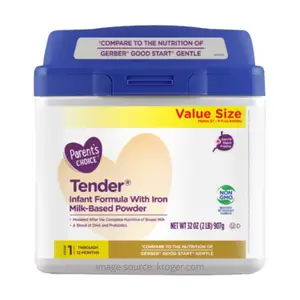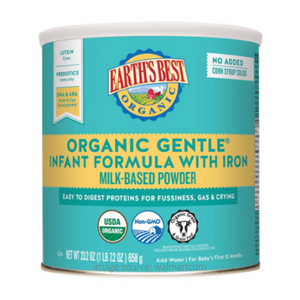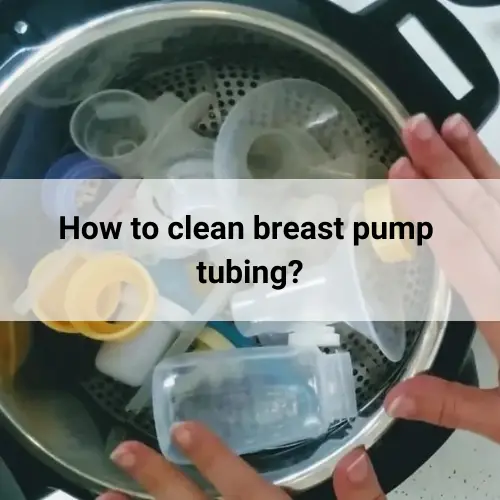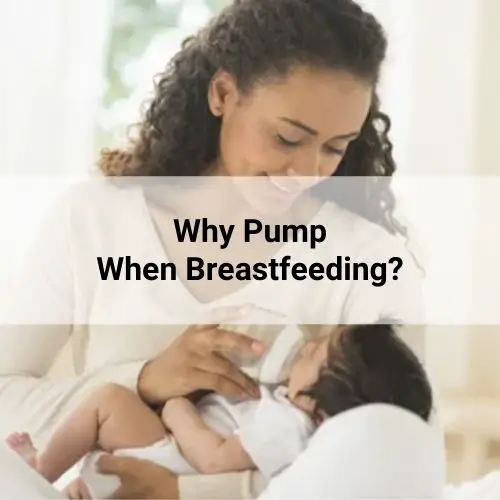Pandemic-related supply-chain issues and ingredient shortages have led to some infant formulas being out of stock in the USA.
In February 2022, this problem worsened when Abbott voluntarily recalled some of its popular formulas such as Similac, due to possible contamination with Cronobacter sakazakii. It is a bacterium that can contaminate dry foods such as powdered infant formula. It can make babies, especially newborns, very ill, so this issue is not something to be taken lightly.
Data from the New York Times suggests that the inventory of infant formula is down about 40% across the country.
The current situation calls for parents to deal with purchase limits or bare shelves, alongside excruciatingly long delivery estimates from online stores.
We understand that being unable to find infant formula to feed your child can be an especially stressful reality.
So let’s get straight to the point – what do you do if you can’t find your go-to formula due to the shortage?
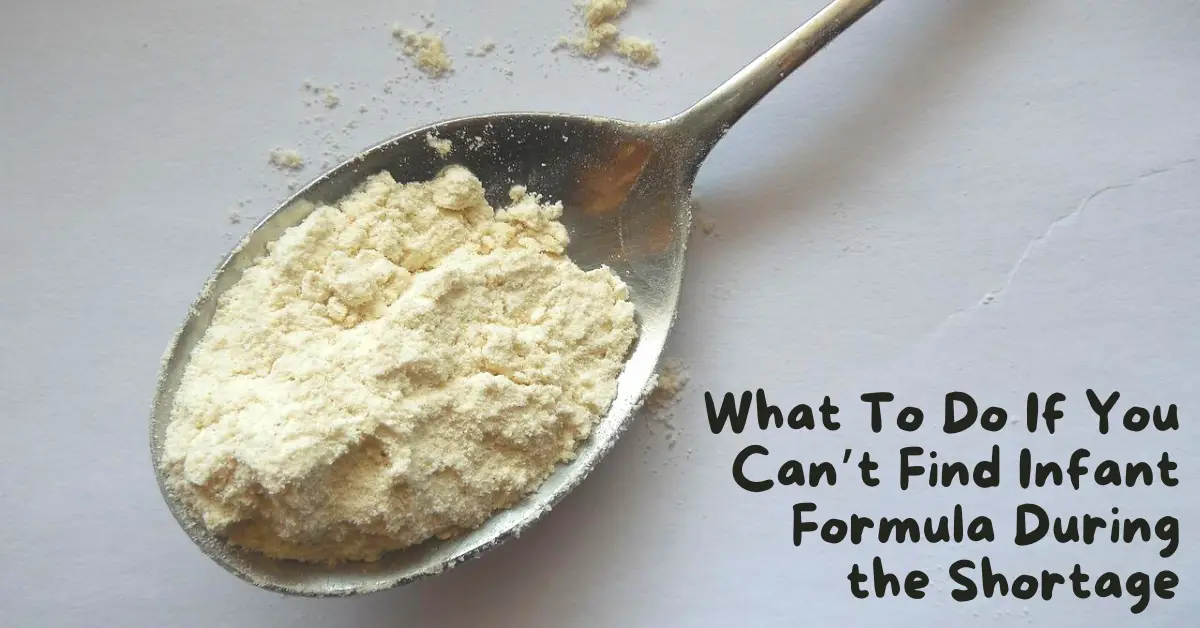
First things first. Take a deep breath to ease things up.
If your go-to formula is currently unavailable, Dr. Tracy Milbrandt, a pediatrician and associate professor of clinical pediatrics at Southern Illinois University School of Medicine, says that for babies consuming standard, cow’s milk, or soy-based formulas, it’s okay to switch without consulting a pediatrician.
This includes traditional formulas such as those made from intact milk proteins, partially hydrolyzed “gentle” formulas made with partially broken-down milk proteins, and “sensitive,” “comfort,” or “spit-up” formulas.
If your little one is on a specialized formula though – such as a hypoallergenic or medical formula – it’s important to consult your pediatrician before making any switches.
Dr. Milbrandt advises that any formula will work for babies who were previously on a non-specialized formula. She says that there’s a possibility of a little gastrointestinal adjustment if there’s a change in protein or carbohydrate sources, but in general, babies do just fine.
If aiming for a seamless transition, Dr. Bridget Young, a professor of pediatrics at the University of Rochester School of Medicine and Dentistry, recommends finding a new infant formula containing the same proteins and carbohydrates as the former formula.
For example, if your little one’s current formula includes nonfat milk and whey, try to find an alternative formula with those ingredients. As per Dr. Young, carbohydrates such as maltodextrin, lactose, or corn-syrup solids are the next most important ingredient to keep the same.
Let’s now check out a list of traditional and organic formulas that are available to order online and from stores and retailers (as of publishing time of this video).
Table of Contents
Are Organic Baby Formulas Better Than Traditional Formulas?
Traditional Formulas
Earth’s Best Organic Infant Formula is the least expensive organic formula that has lactose as its only carbohydrate; with protein at 30% whey and 70% casein. It is available on Amazon at $1.48/ounce, with a purchase limit of four 21-ounce cans.
You can also check it out on Kroger at $1.32/ounce, with a purchase limit of four 21-ounce cans.
Gentle and Hypoallergenic Formulas
Gentle formulas contain milk proteins that have been partly broken down, hence these are closer to the size of the proteins in human milk. These formulas are most suitable for babies who are allergic to milk proteins or have medical issues.
Enfamil Reguline is a gentle formula that contains corn syrup solids and lactose plus polydextrose and galactooligosaccharides. Its protein content is at 60% whey and 40% casein before hydrolysis. It is available on Kroger at $1.53/ounce, with a purchase limit of four 19.5-ounce cans.
Gerber Good Start GentlePro Stage One is a gentle formula that contains lactose and maltodextrin as carbohydrates, plus prebiotic 2’-FL and probiotic B. lactis cultures. Its protein content is 100% whey and has no casein. It is available on Kroger at $1.70/ounce, with a purchase limit of four 20-ounce cans.
Sensitive formulas
Sensitive formulas have reduced or no lactose.
Earth’s Best Organic Sensitivity is a sensitive formula that has corn syrup solids as the main carbohydrate, while its protein sources are organic milk and whey. It also contains palm oil. It is available on Kroger at $1.31/ounce, with a purchase limit of four 21-ounce cans.
Liquid (Ready-to-Feed) Formulas
Ready-to-feed infant formulas are convenient, as it’s not necessary for them to be mixed with water before feeding. However, they are more expensive than powdered formula.
The ready-to-feed version of Similac Alimentum wasn’t part of the February recall. It is a specialized hypoallergenic formula for babies with certain medical needs.
The Similac Alimentum Hypoallergenic Infant Formula is corn-free and lactose-free. It doesn’t contain palm olein oil, which helps with softer stools. It is available on Amazon at $0.33/ounce for six 32-ounce bottles, with a purchase limit of 4 cases. It is also available on Walmart at $0.33/ounce for six 32-ounce bottles, with a purchase limit of 5 cases. You can also find it on Target at $0.37/ounce for one 32-ounce bottle.
If you’re still struggling to secure the brands we’ve just discussed, you could try considering store-brand or generic options. This might be a good opportunity to try them. And as they’re less expensive, you could save some money, too.
As per Dr. Milbrandt, store-brand formulas are safe, regulated by the FDA, and nutritionally equivalent to the big-brand formulas.
Research states that all FDA-approved formulas made for healthy, full-term infants are nutritionally sufficient for normal growth and development from birth through the first year.
At publishing time of this video, here are the available generic options.
The Parent’s Choice Tender Non-GMO Infant Formula is the best “gentle” formula. It is made with all partially hydrolyzed whey protein, which may be easier for some babies to digest versus the intact milk proteins found in traditional formulas. To add, it includes several extra nutrients also found in more expensive formulas. It is available on Walmart at $0.63/ounce for one 32.2-ounce tub.
The Earth’s Best Organic Gentle & Easy To Digest Milk-Based Infant Formula with Iron is best for babies who have difficulty with digesting proteins. It contains partially hydrolyzed whey and 25% the amount of lactose found in standard, milk-based formulas, which helps to reduce fussiness, gas, and crying. It is available on Walmart at $1.33/ounce for one 21-ounce can.
When you still can’t find your go-to formula, here are some things to keep in mind.
It’s most likely that you’re thinking about making your own organic baby formula. You could consider making a nourishing and healthy baby formula at home using safe organic ingredients that matches breastmilk as closely as possible. Check out our recipe which only takes about 10 minutes to make.
Pediatricians point out though, that homemade formula is often nutritionally inadequate and could get contaminated with bacteria during preparation, so please do have a good think about this option.
Don’t dilute formula if you’re running low on it. If you try to add extra water to your formula, your little one could end up with electrolyte imbalances. As per Dr. Milbrandt, diluted formula is not nutritionally adequate.
Don’t consider buying formula from online marketplaces like Facebook or Craigslist. As much as possible, make your purchases from local stores or trusted online retailers.
Dr. Young advises against buying infant formula from third-party sellers, as you can’t be sure that the product is authentic and if it has been kept within proper storage conditions. It’s easy to fall victim to scams or price gouging at this stressful time. Make all efforts to buy from a trusted store or pharmacy, or directly from the manufacturer.
Please don’t use toddler formula for babies less than a year old. Toddler formula isn’t regulated by the FDA like infant formula. To add, it doesn’t have the same nutritional content. If you have no other choice, the American Academy of Pediatrics says that you can feed a baby who’s over 6 months old with toddler formula just for a few days.
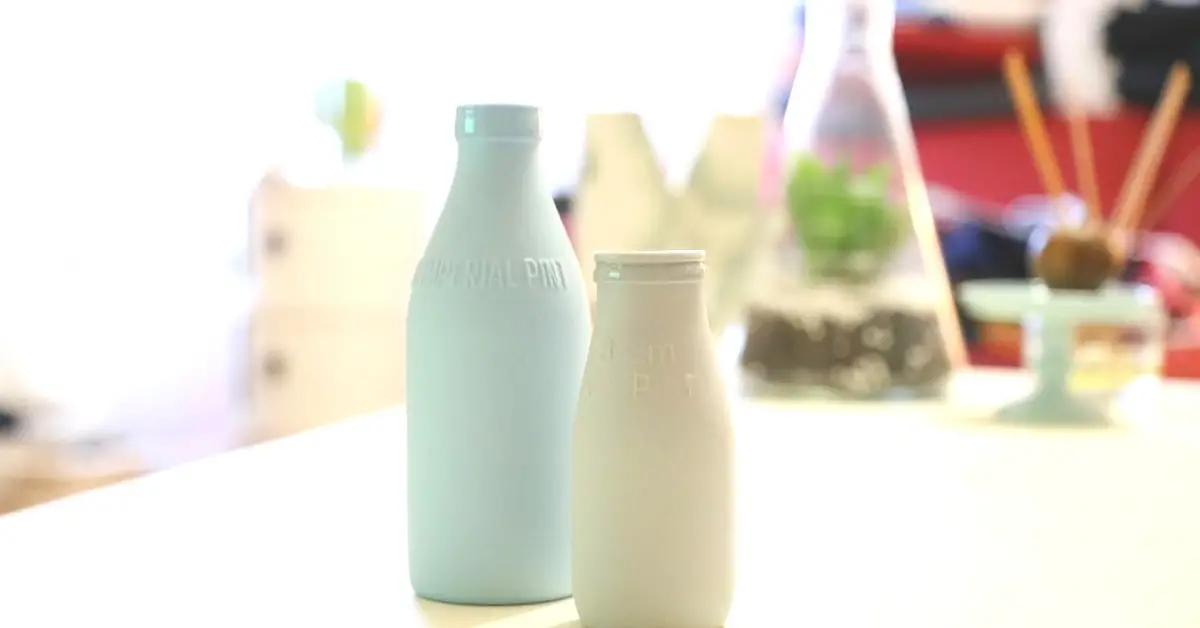
If you’re considering imported European formulas, be gently reminded that these aren’t FDA-approved. Doing so brings along some potential risks.
For one, Dr. Young points out that the labeling requirements for US and European formulas are different. In the US, hypoallergenic formulas must contain only fully broken-down milk proteins. In Europe, hypoallergenic formulas like HiPP-HA, may contain both intact and broken-down proteins.
For babies with milk-protein allergies, intact proteins in HiPP-HA could cause some reactions and therefore shouldn’t be used as substitutes for hypoallergenic US formulas.
If you have any concerns about your baby’s health and nutrition, don’t hesitate to speak with your pediatrician.
If your child has special health needs, be sure to check with your pediatrician about medically appropriate and safe feeding alternatives.
We truly appreciate that feeding a baby is hard work. Hopefully, this infant formula shortage will be resolved soon.
How are you dealing with the current infant formula shortage?
We’d love to hear from you. Let us know in the comments below.
Thanks for stopping by!
Related Articles:
